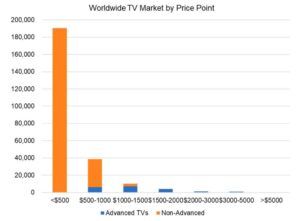Energy Performance Certificate and Consumption Certificate Which Option Is Best for You

When you’re faced with the choice between an Energy Performance Certificate (EPC) and a Consumption Certificate, it’s crucial to think about what matters most to you. The EPC gives you a detailed snapshot of a property’s energy efficiency potential, while the Consumption Certificate highlights actual energy usage from past residents. Depending on whether you’re eyeing future improvements or immediate costs, your decision will vary. But how do you determine which one aligns better with your goals? Let’s break down the key aspects that might just tip the scales in your decision-making process.
Understanding Energy Performance Certificates
Energy Performance Certificates (EPCs) break down the energy efficiency of a property, helping you understand how well it uses energy.
These certificates provide essential information regarding a property’s energy consumption and potential savings on energy costs.
When you look at an EPC, you’ll see a rating ranging from A (most efficient) to G (least efficient), giving you a clear understanding of where the property stands in terms of energy performance.
Each EPC includes details about the property’s structure, heating systems, and insulation quality. This information can guide you in making effective upgrades or renovations to improve energy efficiency.
If you’re considering buying or renting, an EPC can be a valuable tool; it allows you to compare various properties based on their energy performances.
Having a higher EPC rating often indicates lower energy bills and a reduced carbon footprint, which may be particularly appealing to environmentally conscious buyers.
Don’t underestimate the financial implications of energy performance; a well-rated property can save you significant amounts over time.
Exploring Consumption Certificates
While underst Wärmeschutznachweis ing your property’s energy usage, exploring Consumption Certificates becomes essential. These certificates provide valuable insights into how much energy your home consumes over a specific period—typically the past three years. Unlike other energy performance assessments, Consumption Certificates focus on actual usage instead of theoretical calculations, making them highly relevant for potential buyers or tenants.
When you look at a Consumption Certificate, you’ll notice key details, like heating and hot water use, alongside the property’s energy efficiency rating. This information can help you identify areas where improvements are needed, ultimately saving you money and enhancing comfort.
It also allows you to compare your consumption with similar properties in your area, giving you a better understanding of your home’s efficiency.
Obtaining a Consumption Certificate can be straightforward, usually requiring minimal documentation about your energy bills and previous usage. Working with an energy advisor can streamline the process, ensuring you receive accurate assessments.
This will lead to more informed decisions regarding energy-saving upgrades or renovations. So, before committing to any property, make sure to explore the Consumption Certificate, as it could reveal a wealth of information about your future energy expenses.
Key Differences Between EPC and Consumption
Understanding the key differences between an Energy Performance Certificate (EPC) and a Consumption Certificate is crucial for anyone looking to assess a property’s energy efficiency.
An EPC provides a theoretical assessment of a building’s energy efficiency based on its design, insulation, and heating systems. It reflects the potential energy performance if the property were to be used optimally.
On the other hand, a Consumption Certificate represents actual energy use over a specified period, usually the last three years. This certificate takes into account how the previous occupants used energy, making it a practical reflection of energy consumption patterns.
Another key difference lies in how they’re prepared. An EPC is typically generated through a standardized assessment conducted by a certified energy expert, whereas a Consumption Certificate relies on utility bills and data from previous tenants.
While both documents serve to inform potential buyers or renters about energy efficiency, one focuses on potential performance, and the other on actual use. It’s essential to know these distinctions, as they can influence your decision-making process for energy-efficient properties.
Benefits of Each Certificate
When it comes to energy assessments, both the Energy Performance Certificate (EPC) and the Consumption Certificate offer unique advantages that can benefit property owners. The EPC provides a comprehensive overview of your property’s energy efficiency based on specific characteristics, including insulation, heating systems, and ventilation.
This thorough evaluation helps you pinpoint areas in need of improvement. By addressing these, you can enhance your home’s energy efficiency and decrease overall energy costs.
On the other hand, the Consumption Certificate is based on actual energy consumption data from the past few years. This real-world insight allows you to assess how your property performs in day-to-day living.
If you’re a potential buyer, this certificate provides transparency about previous usage, giving you a clearer picture of ongoing energy costs.
Both certificates cater to your unique needs. While the EPC helps identify areas for improvement, the Consumption Certificate offers insight into actual performance.
Depending on your priorities—whether you’re looking to invest in upgrades or just need an understanding of existing conditions—each certificate presents valuable information to guide your decisions.
Making the Right Choice
Choosing between an Energy Performance Certificate (EPC) and a Consumption Certificate can be daunting, especially since both serve distinct purposes. To make the right choice, you need to evaluate your specific situation.
If you’re a prospective tenant or buyer seeking to understand a property’s energy efficiency more holistically, an EPC is likely your best bet. It provides an energy assessment based on standardized measurements, giving you a clear idea of potential utility costs and improvements needed.
On the other hand, if you’re looking to gauge a property’s actual energy usage based on its past performance, a Consumption Certificate offers valuable insight. This certificate relies on previous energy bills, allowing you to see how much energy the current inhabitants consume.
Consider your priorities. If you value a general understanding of energy efficiency for long-term planning, go with an EPC.
However, if you’re keen on evaluating costs, especially for properties with high turnover rates, a Consumption Certificate may be more relevant.
Ultimately, your choice should align with your needs, as well as your preferences for transparency in understanding energy consumption and potential expenses.
Conclusion
In choosing between an Energy Performance Certificate and a Consumption Certificate, it really comes down to what you need. If you’re looking to assess a property’s potential for energy efficiency, go with the EPC. But if you want a clearer picture of actual energy costs from previous occupants, the Consumption Certificate is your best bet. Weigh your priorities, and pick the option that fits your goals best, whether that’s planning for the future or evaluating immediate expenses.







